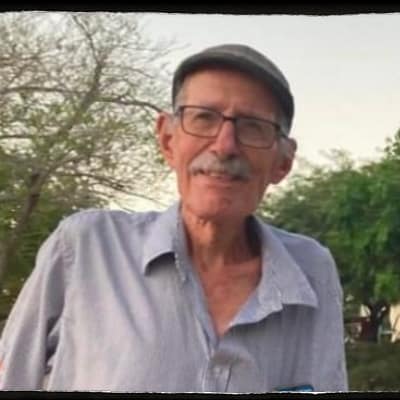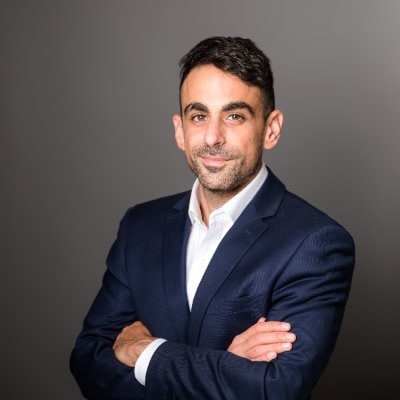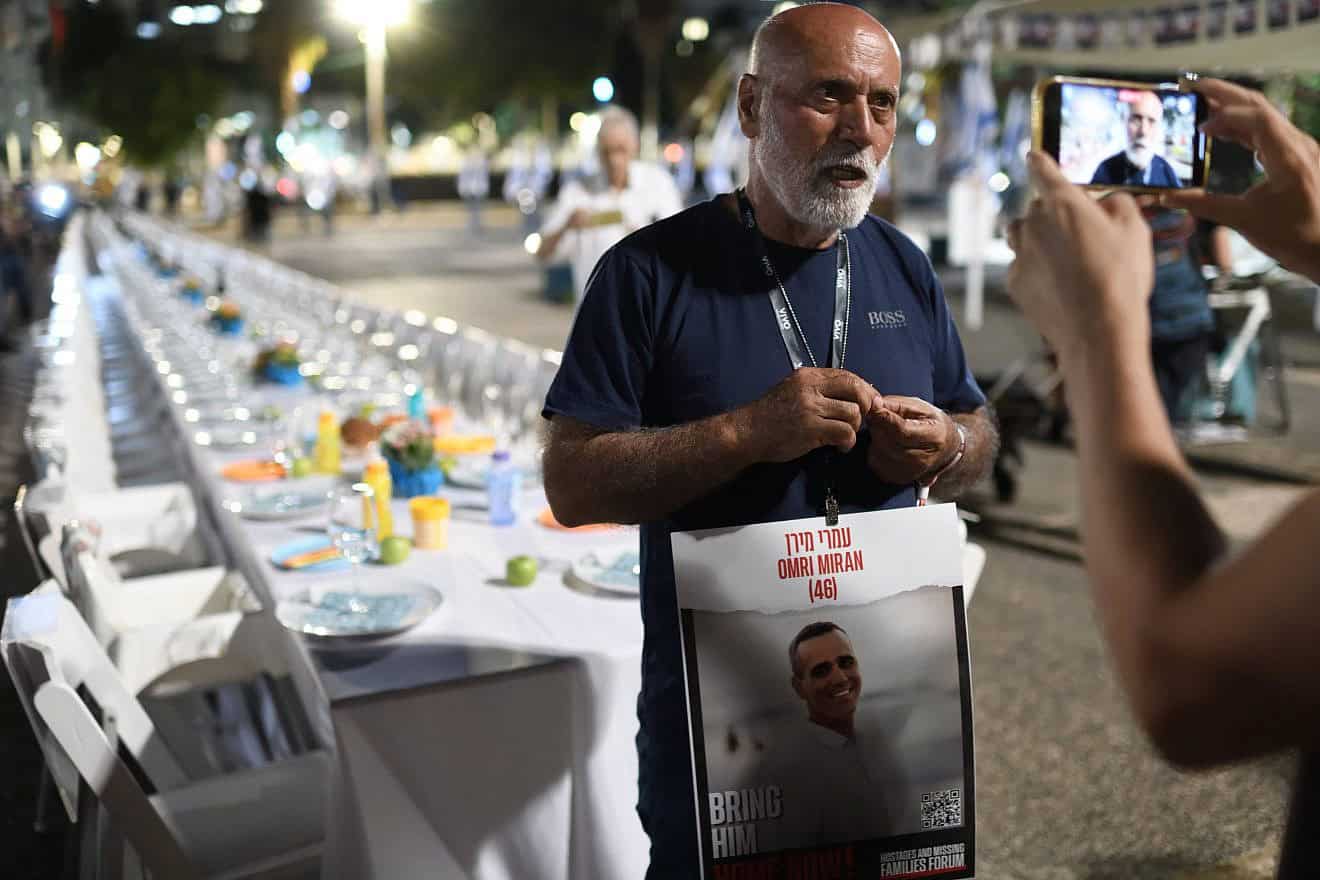The head of the United Nations has been assailed by a range of Israeli officials since the Hamas massacre in southern Israel on Oct. 7 for any number of diplomatic offenses, mischaracterizations, false assessments and perceived bias, starting with an implied justification for the assault in the weeks after.
But the families of those being held hostage in Gaza since Oct. 7 say that António Guterres, the U.N. secretary-general, has provided an open and willing ear, and is doing what he can to address their concerns, despite his limited options and power.
Regular Friday-morning protests by the hostages’ families and their supporters outside of Guterres’s Manhattan residence subsided months ago.
“Every time he opened the door and they were there, he would stop, and he would speak to them. These are people in distress, people who hurt,” Stephane Dujarric, spokesperson for Guterres, told JNS.
While those protests were halted, families of the estimated 120 hostages still being held captive in the Gaza Strip (though a percentage is said not to be alive) have continued to meet with Guterres, often during publicly unannounced sitdowns. The last known such meeting came the week of June 2.
“We need to understand that the secretary-general has no real influence or real power. He is a ceremonial figure at the end of the day, so he can’t offer much. It’s not like he can release the hostages,” Moshe Lavi, brother-in-law of hostage Omri Miran, told JNS.
Still, Lavi, who has sat in some of those meetings with Guterres, says what he can do is use the pulpit that comes with being the head of the world’s largest global diplomatic organization to shape the narrative and define his priorities.
“What he can do—and he does—is tweet often or release official statements with the U.N. stamp about the need to immediately release the hostages unconditionally,” Lavi continued. “And what he does as well is engage in diplomacy behind closed doors, specifically with Qatar, because he has close connections to the leaders of that country.”

Daniel Lifshitz, the grandson of 83-year-old hostage Oded Lifshitz—one of the oldest remaining Israeli captives—also had his 85-year-old grandmother, Yocheved Lifshitz, taken by terrorists from Kibbutz Nir Oz on Oct. 7. She was released in a hostage/security prisoner exchange in October.
Lifshitz said the families asked Guterres early on in the war—when the chief’s sole focus seemed to be the welfare of the Palestinians in Gaza—to speak more about the hostages’ plight.
“At some points now, he tweets just about the release of the hostages,” said Lifshitz. “I can say that he helped us as well with arranging some meetings of the U.N. ambassadors of the Arab countries. Some refused. Some said yes.”
Guterres, according to Lifshitz, facilitated meetings with the Qataris and the Emiratis. A meeting requested by the hostages’ families with the Saudis through Guterres was not granted by Riyadh.
‘He needs to take some more actions’
In talks with the families, Guterres discussed prior experience he had dealing with two detained colleagues when he served as the U.N. High Commissioner for Refugees. One was held in Chechnya for more than a year, with another held in Pakistan for six months, according to a Guterres spokesperson. Guterres has shared his dealing with the trauma of the families of those detained workers.
Lavi described the nature of the families’ meetings with Guterres as “always positive yet somber.”

He added that the families have tried to separate their personal mission from the tensions in the broader U.N.-Israeli relationship.
“We’re not diplomats. We’re not the Israeli delegation to the U.N. And so, we engage only on the issue that matters to us, which is the release of the hostages,” said Lavi. “Our goal is to engage stakeholders from every possible institution—to call for the release of the hostages and work behind closed doors to promote their release.”
Ultimately, Lifshitz told JNS that regardless of the U.N. head’s feelings on Israel and the war, it’s in his own interests to push for the hostages’ release if he truly wants to bring an end to the hostilities.
“I told him that he needs to take some more actions,” Lifshitz told JNS. “He has to say that the end of the war is the release of the hostages.”

























